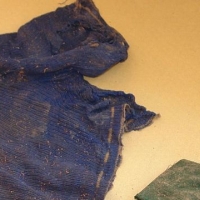Implementation and Accountability
How to ensure that international rules protecting the most vulnerable in times of war and peace are implemented and respected? Are the existing mechanisms to ensure monitoring and implementation working? Do they provide redress and accountability for the victims? What is lacking in today’s legal and policy framework and what are the challenges?
Although different in substance and varying in terms of compliance mechanisms, all international law frameworks – international humanitarian law (IHL), international human rights law, international criminal law, transitional justice – raise challenges in terms of implementation and accountability.
The proliferation of international, regional and domestic human rights standards has led to a multitude of actors and procedures dedicated to their implementation. In turn, this has crowded existing regulatory regimes. For IHL on the other hand, dedicated monitoring mechanisms are rare and many are either not used or otherwise ineffective. International criminal law courts and tribunals provide partial solutions as they focus on individual criminal responsibility. Our research in this domain aims to accompany existing mechanisms and their stakeholders, ongoing policy discussions, negotiations, reforms and new developments in order to ensure the ongoing relevance of the international legal framework for the most vulnerable, along with accountability and redress for victims.

















